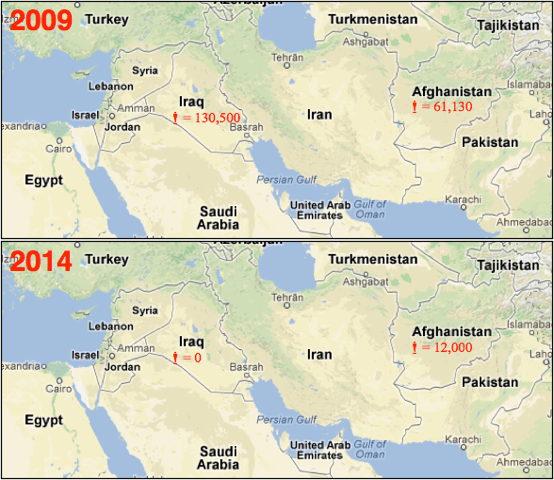I’ll be speaking on a panel at CPAC 2013 about “Benghazi and Its Aftermath: U.S. Middle East and Southwest Asia Policy.” My focus will be the great strategic mistake of June 2009, when we could have sealed victory the War on Terror, but failed to do so because of the Obama administration’s refusal to topple the Iranian regime.
In June 2009, when Iran’s theocrats stole the election for hardliner Mahmoud Ahmadinejad, Iranians knew two things: first, that they hated the regime; second, that international troops had toppled regimes to the east and west, and stood just across each border in large numbers–130,500 in Iraq and 61,130 in Afghanistan.
The Iranian people rose up and nearly toppled their government. They might have succeeded if we had given them some support–not necessarily military support, but perhaps a declaration that the Iranian government was not legitimate. That might have made it more difficult for the regime to mobilize resources to save itself.
But the Obama administration abhorred “regime change” and remained committed to the delusion that it could reach a “grand bargain” with Iran on its nuclear program. An opportunity was lost to remove the nuclear threat without firing a shot–and though the regime remains shaky, it has been able to recover substantially.
Today there are virtually no international troops in Iraq, and by 2014 there will only be, at most, about 12,000 in Afghanistan. The Obama administration has also taken one of the U.S. Navy’s two aircraft carriers out of the Persian Gulf in a political move designed to amplify its domestic campaign against the budget sequester.
From the Iranian regime’s perspective, it is as if it had managed to turn away a foreign invader with little overt (though much covert) effort. That has emboldened Iran, not just in its nuclear ambitions but in its sponsorship of terror. And although Al Qaeda is a Sunni group, it derives some inspiration from Iran’s terrorist successes.
The instability of the Arab Spring, which was perhaps inevitable after the toppling of Saddam Hussein in 2003, may have been less threatening if the Iranian regime had not been around to form alliances with the Islamist governments that arose to replace secular dictators. We missed a chance in 2009. We have cause to regret it.

COMMENTS
Please let us know if you're having issues with commenting.